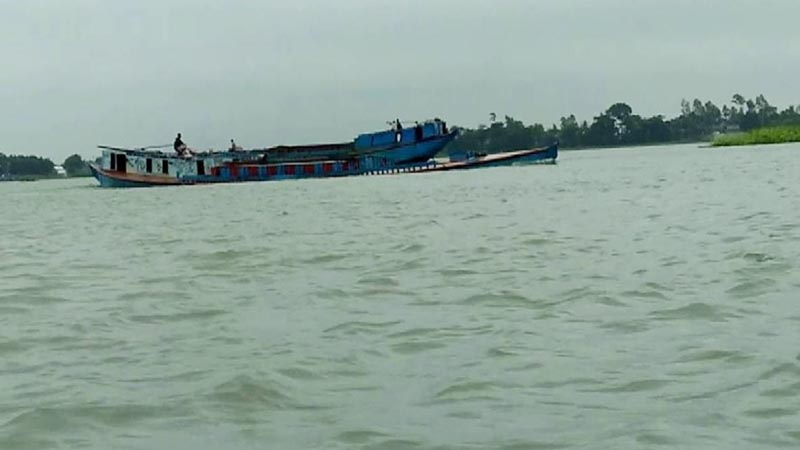Meghna can meet Dhaka water demand: ADB

Water of Meghna River which is abundant in supply and reasonably clean can meet the ever increasing water demand of the capital city, observes an Asian Development Bank report. The report published on ADB website on Wednesday also observes that strong monitoring by the government is a must for ensuring pollution-free water in Meghna River which can be an alternative source of pure drinking water for the dwellers of Dhaka.
The report explores the potential of the Meghna as an alternative water source for Dhaka where conventional water sources are under severe stress at present due to increased water demand. “Several of the city’s alternative water sources have been lost due to encroachment, pollution, and unplanned development,” the report says, adding the Meghna River, abundant in supply and reasonably clean, can be a lucrative alternative source in this context. According to the report, currently, 20.6 million residents of the capital require 2,485 million liters per day.
Almost 87pc of this need is met through groundwater sources as the tradition source of Buriganga River turned heavily polluted. The river is now highly polluted, as are nearby water bodies like the Balu, Shitalakhya, and Turag rivers. “This has led to increased dependence on groundwater, but continuous extraction is depleting the water level by 2–3 meters per year.”
The joint institutional setup by DOE and DWASA, and collaboration with local administration should be an effective arrangement, and avoiding river pollution by declaring an ECA for the protection of biodiversity will in turn protect the two water intake points, the report adds. It also said the newly declared economic zones in the Meghna River area should have state-of-the-art production methods with adequate treatment facilities or central ETP to minimize the waste load to the river.
“Small and medium-sized industries that do not have an ETP or operate poorly must be brought under compliance, and cleaner production is recommended to reduce discharge load and maximize profit.” “Municipal solid waste and wastewater should not be directly discharged into the river. The DOE should take appropriate action in applying its regulatory instruments like site clearances and environmental clearance certificates.”
“It should require all new development proposals along the Meghna River to include assessment of the cumulative impacts on water quality,” the report says, observing that the river water quality monitoring programme conducted under the TA should be continued by government and a continuous monitoring system with an early warning facility should be established at both intake points.
“Together, these measures executed in earnest should help in protecting the water quality of the Meghna River for Dhaka’s sustainable water supply.” “These measures include designating ecological critical areas, promoting cleaner industrial production, monitoring pollution, controlling wastewater discharges and pesticide use, and empowering local stewardship of the river.”
The report recommended equipping newly-declared economic zones in the Meghna River area with state-of-the-art production methods and adequate treatment facilities or central ETP. It suggested bringing under compliance small and medium-sized industries lacking ETP or those operating poorly. “Cleaner production is recommended to reduce discharge load and maximise profit,” it said.
The report said solid waste and wastewater from municipalities should not be directly discharged into the river. “The DOE should take appropriate action in applying its regulatory instruments … [and] require all new development proposals along the Meghna River to include assessment of the cumulative impacts on water quality,” the report said.
ADB suggested the government to continue the river water quality monitoring programme conducted under the TA and install a continuous monitoring system with an early warning facility at both intake points. “Together, these measures executed in earnest should help in protecting the water quality of the Meghna River for Dhaka’s sustainable water supply,” the report said.




